 You should see a white rectangle with a question mark in the backgroud colour to the
left of this text. The picture is stored in the PNG format although I know that some browsers do
not correctly show transparent PNGs. If you belong to a group of users of such a browser, you have
bad luck -- or perhaps good luck because you can see a short demonstration of what is planned by EU
legislation. All browsers can display transparent images in the GIF format, however -- this format
makes use of a compression algorithm developed and published in open literature by Lempel, Ziv and
Welch, the patent of which is owned by Unisys. The algorithm thus must not be used in free software
and the picture must not be saved as GIF. I bought a program the manual of which states that the
price includes a fee for the LZW compression algorithm. I could thus legally create GIF but I made
the picture as PNG by another program on purpose.
You should see a white rectangle with a question mark in the backgroud colour to the
left of this text. The picture is stored in the PNG format although I know that some browsers do
not correctly show transparent PNGs. If you belong to a group of users of such a browser, you have
bad luck -- or perhaps good luck because you can see a short demonstration of what is planned by EU
legislation. All browsers can display transparent images in the GIF format, however -- this format
makes use of a compression algorithm developed and published in open literature by Lempel, Ziv and
Welch, the patent of which is owned by Unisys. The algorithm thus must not be used in free software
and the picture must not be saved as GIF. I bought a program the manual of which states that the
price includes a fee for the LZW compression algorithm. I could thus legally create GIF but I made
the picture as PNG by another program on purpose.
It makes little sense for me to write here why software patents are bad. Let us think over what such a law brings. It brings a lot of duties with minimum rights to authors of free open source software while it gives giant rights without duties to commercial software houses. Let us explain it using an analogy. Let us assume that I am a car producer. I invent a new kind of a steering wheel and obtain a patent for it. Afterwards I can walk from shop to shop and check whether another producer does not use my steering wheel. However, as a software developer, I have a bad luck. Commercial software is not available in the source code. Commercial software houses can thus unpunishably abuse my patent because I have no possibility to verify it. On the contrary, they can choose a successful open source program and obtain a patent for its key part. The author will one day find that he or she is forced to pay a licence in order to be allowed to use his or her intellectual property. I believe that this is possible. Use Google to search for "circular transportation device" (in quotes). You will find that an Australian farmer John Keogh in May 2001 managed to obtain a patent for a wheel under this title. Anyway, it has already happened with a patent for cookies and Internet shops.
Software patents do not protect authors, the contrary is the truth. Rich software houses need not compete by quality of programs, their argument will be a bag full of US dollars or banknotes of other currency. The law on software patents could protect authors only if it contained a device enabling to verify whether the patent is not abused. This is possible only in case that it is compulsory to provide all software freely in the computer readable source code to everybody.
In the 15th century the church trafficked with indulgences. "Pay, and you will be forgiven," was its motto. John Hus criticised it and was burnt to death for that on 6th July 1415. The law on software patents is similar. "Pay, and you will be allowed to write programs. Pay, and you will be allowed to read a document. Pay, and you will be allowed to express your thoughts in a computer readable form and send them to those who paid for the same patent," says the law between lines. It is now up to you whether you let yourself to be under control of power of money of a few rich software houses, or whether you wish to remain in the world of free electronic information.